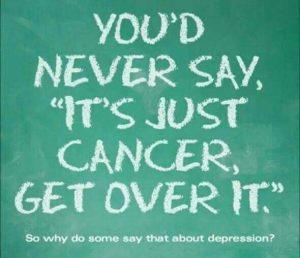Kathlene Ngo Section A03
Week Theme: Faith, Sexuality, and Mental Health: The Triple Taboo Topics"The holistic mental health discourse is liberal in nature: it pretends that universalizing human experience (or accepting difference only in the context of the universal) is the only way to destigmatize those of us who are diagnostically labelled by the medical establishment." This quote stood out to me immensely as society today views mental illness as an "illness" to be fixed or an experience that is normalized through Western medication. However, every person's mental illness is not identical & the path to recover/living with mental illnesses should not be encompassed within scheduled medication, or other holistic approaches.
In many cases, such techniques such as herbal treatments, meditation, and acupuncture really do work. However, holistic health discourse shames the idea of "divergence." In both discourses for holistic health and Western medication, the idea of "normal" and healthy means to view any illnesses as wrong and eradicate them. This is very prevalent in the last week's readings about mental health for Asian-Americans. In Eastern culture, mental illnesses are simply seen as "lazy people asking for drugs to fix their attitude" and that such sickness can be cured with certain regimes and lifestyle changes. Hence, it is even more difficult for Asian-Americans who have mental illnesses. They are usually torn between the normalization from Western medicine and the shame from Eastern ideology about their mental illnesses. We must understand that abnormal is also normal and that being abnormal is not equivalent to being not-right.
Question: What are the roots of normalization of mental illnesses and how are we able to tackle such wronged ideology at its source?

References
Barton, L. "Get Over It' Is Unhelpful Advice for Mental Illness Sufferers" HealthyPlace, Healthy Place, www.healthyplace.com/blogs/survivingmentalhealthstigma/2016/09/get-over-it-is-not-helpful-advice-for-mental-illnesses.
Haydock, S. "Fucked Up." In I would always rather be abnormal than holistic: Nine micro-essays. (45-53). DSM: Asian American edition.
No comments:
Post a Comment